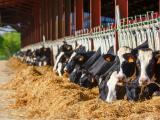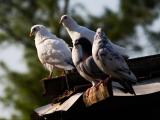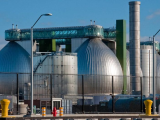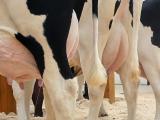Dec 16, 2003 (CIDRAP News) – An outbreak of avian influenza in South Korea has resulted in the deaths of 24,000 chickens at a farm southeast of Seoul.
The disease killed 19,000 chickens at the farm and prompted authorities to destroy the remaining 5,000 chickens as a containment measure, according to a report by the OIE (Office International des Epizooties), the world organization for animal health.
No signs of the disease have been seen on neighboring farms, according to the OIE report, which was provided Dec 12 by a veterinary officer of the Korean Ministry of Agriculture. Authorities are restricting the movement of poultry within 10 kilometers of the affected farm, the official reported.
The source of the virus was unknown, according to the OIE report. It said migrating birds have often been seen in a cornfield next to the affected farm.
A Dec 15 Reuters report said South Korea has about 100 million chickens, but few are exported.
The OIE report listed the virus as avian influenza subtype H5. The Reuters report quoted an agricultural official as saying the viral strain was H5N1, a type that has been known to cross into humans in recent years. An H5N1 outbreak in Hong Kong in 1997 led to 18 human cases with six deaths. Two additional human cases of H5N1 infection, with one death, were reported in Hong Kong last February.
In November, another human case of avian flu in Hong Kong was attributed to another viral strain, H9N2. The case involved a 5-year-old boy who was hospitalized briefly and recovered.
Last winter and spring, the Netherlands was hit by a major outbreak of highly pathogenic avian influenza involving the H7N7 virus. Authorities destroyed about 26 million birds to stop the outbreak. The virus also infected more than 80 people and caused the death of a 57-year-old veterinarian.
See also:
Dec 10 CIDRAP News story, "Hong Kong probes human case of avian flu"



















